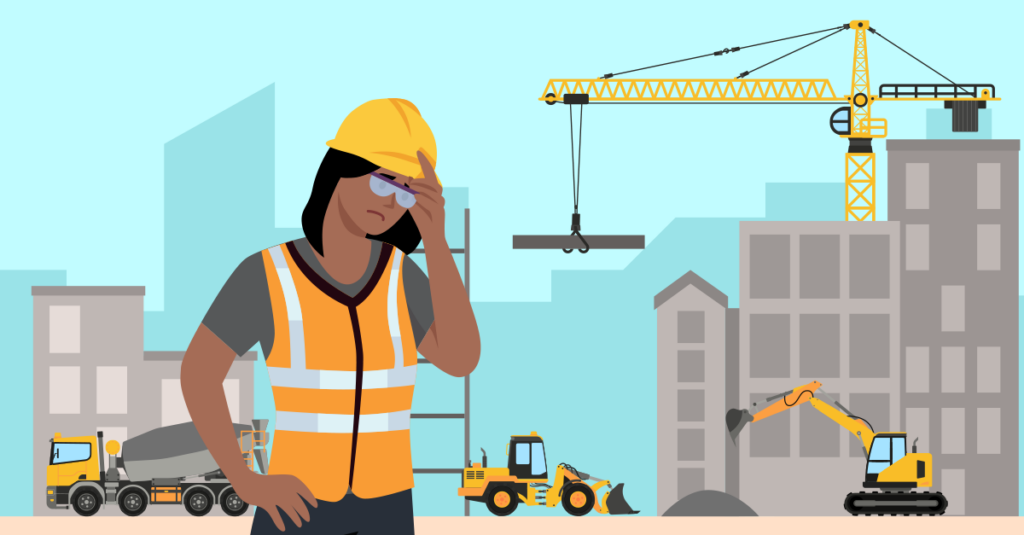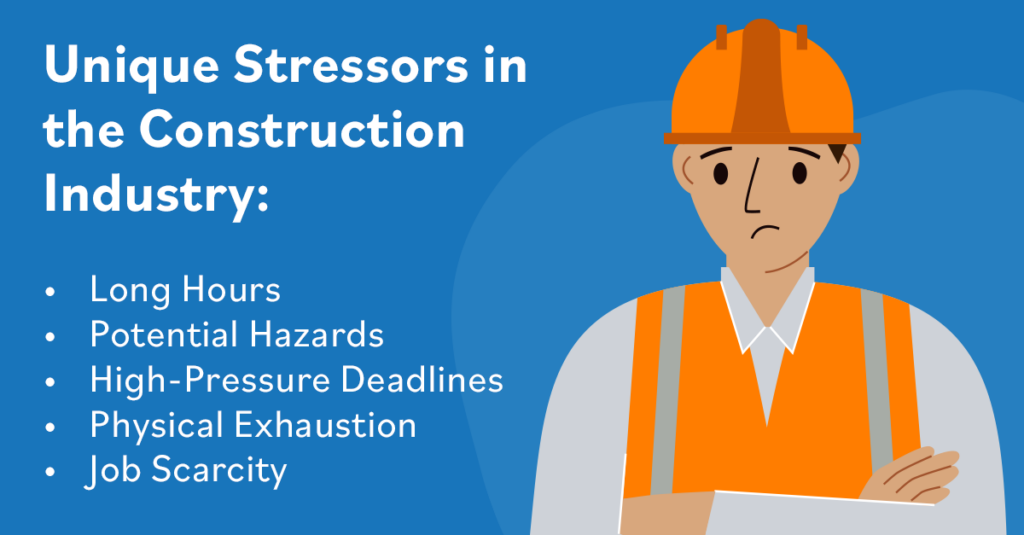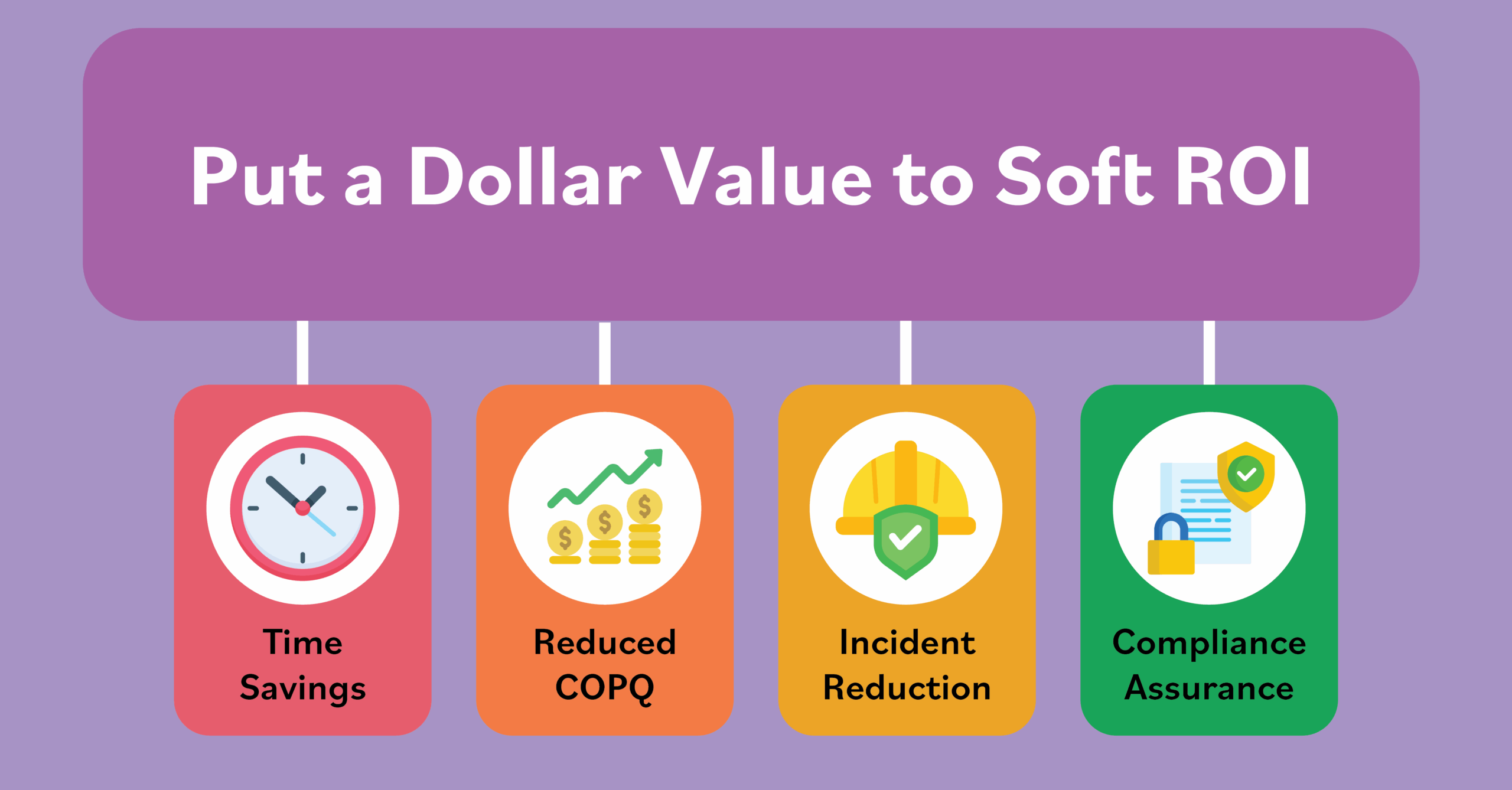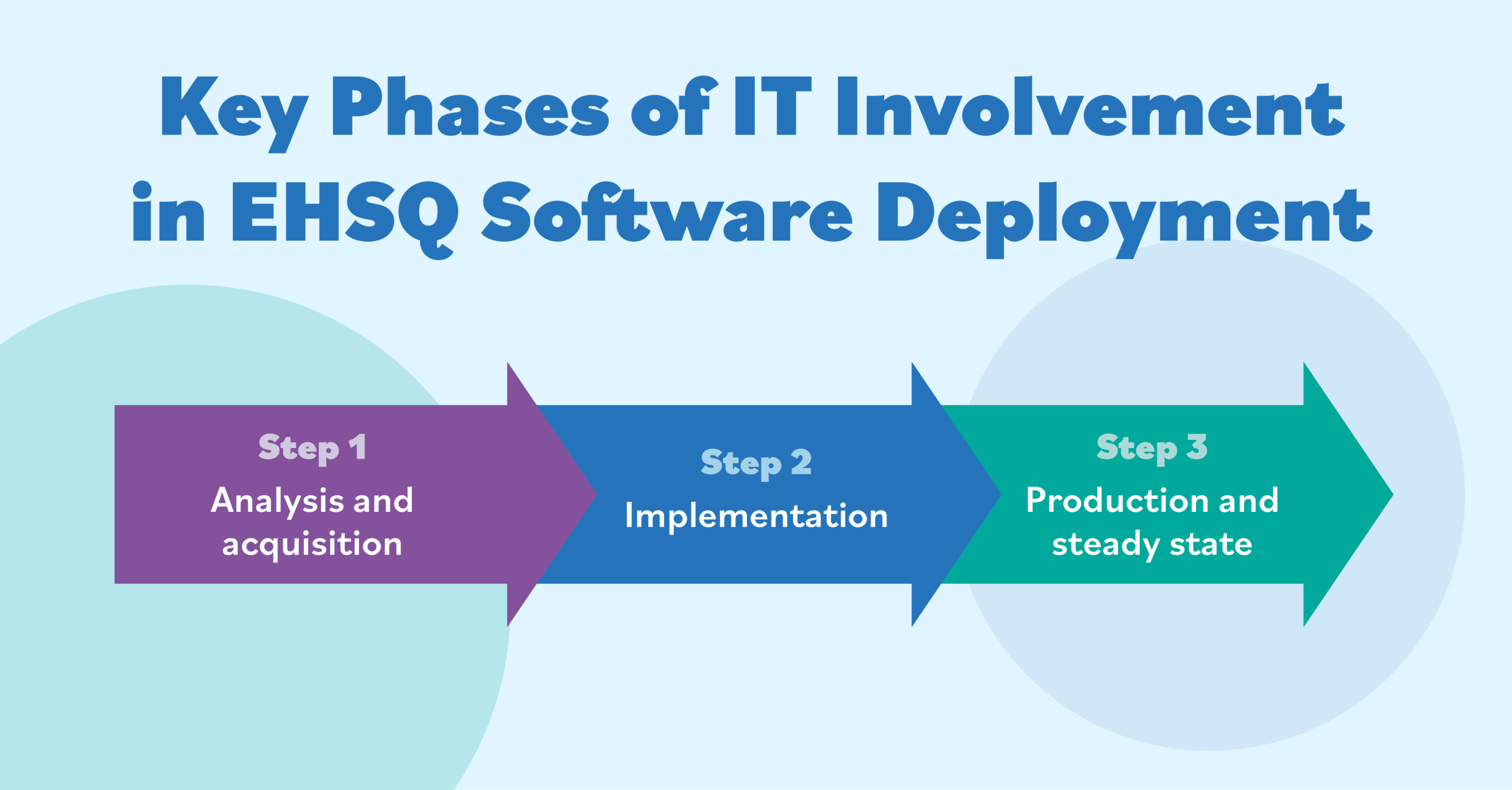Mental Health in Construction: A Foundation for Safety and Productivity
May 21, 2024

The construction industry, known for its tough exterior and high-risk environments, holds a less visible but equally dangerous challenge: the mental health of its workers.
With suicide rates alarmingly high—56 male workers and 10 female workers per 100,000 experienced fatal mental health outcomes in 2021, according to the CDC’s most recent data—it’s clear that mental health isn’t just a personal issue, but a pivotal industry crisis. The suicide statistics for both men and women are higher than the nationwide average rates of 32 and 8, respectively.
Construction’s on-the-job fatality rate was 9.6 deaths per 100,000 workers that same year, according to the U.S. Bureau of Labor Statistics, meaning construction workers died by suicide at a significantly higher rate than they died due to their hazardous work. That’s despite construction ranking near the top of industries with the most fatal on-the-job injuries.
In turn, a 2020 study found that 83% of construction workers have experienced a mental health issue. Evidence from the 2007-2009 financial crisis suggests that the COVID-19 pandemic could increase the risk of suicide in the construction industry.
Highlighting the industry’s commitment to tackling this issue, Bechtel, a global leader in construction and engineering, has pledged $7 million over five years to the American Foundation for Suicide Prevention. This historic donation—the largest ever received by AFSP—aims to set up programs reaching 500,000 U.S. construction workers, marking a significant step toward change. This commitment by Bechtel not only addresses the immediate need for mental health support but also sets a precedent for other industry leaders to follow.
While promising, the Bechtel initiative should be seen as a starting point. It’s imperative for construction industry leaders to recognize and address systematically the underlying factors leading to mental health issues in the construction industry, which undermine safety and productivity. Then, they can take additional steps needed to address these problems effectively.
Unveiling Unique Stressors

Construction workers are confronted with a myriad of unique stressors that significantly impact their mental health. The nature of construction work demands long hours, often extending into overtime without prior notice. This unpredictable schedule can lead to chronic fatigue and strain on personal relationships, as workers struggle to balance work-life commitments.
Physical exhaustion is another critical factor. The physically demanding nature of construction work, which often involves heavy lifting, operating large machinery and performing tasks in potentially hazardous conditions, contributes to both physical and psychological stress. Such conditions not only increase the risk of physical injury but can also heighten anxiety levels, as workers continuously operate in environments where acute awareness and precision are mandatory for safety.
Job insecurity further exacerbates these issues. The construction industry is notoriously cyclical, with employment heavily dependent on economic cycles. During downturns, job losses can be widespread, adding an additional layer of anxiety and stress for workers who may already be dealing with financial pressures.
High-pressure deadlines are also a common stressor within the industry. Construction projects often have fixed deadlines that are rigid and inflexible. The pressure to meet these deadlines can be immense, pushing workers to extend their physical and mental limits, which can compromise safety and amplify stress levels.
Moreover, the inherent dangers of construction work cannot be overstated. Working at heights, exposure to potentially harmful materials and the operation of heavy machinery under stringent conditions contribute to a work environment that is fraught with potential hazards. This constant exposure to danger can lead to a heightened state of vigilance, which is mentally exhausting and can contribute to long-term stress disorders.
Recognizing and addressing these factors is crucial in mitigating their impact and improving the mental well-being of construction workers. Building awareness about these stressors and implementing supportive measures can significantly improve the quality of life for those who build our world, ensuring they are not only physically safe but also mentally supported.
Linking Mental Health with Safety and Productivity
The profound impact of mental health on productivity and safety within the construction industry cannot be overstated. Research consistently shows that untreated mental health issues can significantly affect work efficiency. Workers grappling with mental health challenges are more likely to experience decreased concentration, diminished decision-making capabilities and slowed reaction times, all of which contribute to reduced productivity. This decline in performance not only affects individual output but also has broader implications for project timelines and overall job quality.
Furthermore, mental health issues are closely linked to increased errors in the workplace. Workers dealing with anxiety, depression, or other mental health conditions are more prone to making mistakes. These errors can range from minor oversights to significant miscalculations or misjudgments, which in the high-stakes environment of construction can lead to serious safety hazards.
The risks extend to heightened accident potential as well. Mental health conditions can impair physical coordination and focus, increasing the likelihood of workplace accidents. The construction sector, where physical safety is paramount due to the inherent risks of the work, sees this impact most acutely. For instance, a worker battling severe anxiety may have difficulty focusing on safety protocols or operating machinery safely, which increases the risk of incidents on site.
Fatal outcomes are the most severe consequence of neglecting mental health in construction. The correlation between poor mental health and higher incidences of fatal accidents has been well-documented. These outcomes often result from a culmination of reduced attention to safety measures, impaired judgment and the potential for risk-taking behaviors associated with certain mental health issues.
It is crucial for the construction industry to recognize that mental health is deeply intertwined with every aspect of job performance and safety protocols. Addressing mental health is not just about improving individual well-being but is also a critical component of maintaining workplace safety and enhancing overall productivity. Integrating mental health support into safety training programs, providing resources for mental health care and fostering an environment where workers feel safe discussing their mental health challenges are essential steps toward mitigating these risks and improving outcomes in the construction industry.
Employers’ Role in Cultivating Well-Being
Employers in the construction sector carry a significant responsibility in shaping the mental health landscape within their organizations. The key to fostering a positive mental health environment is the creation of an open culture where issues can be freely discussed without stigma. Implementing robust mental health policies is just the starting point. These policies should not only aim to address issues after they arise but also proactively support mental health through various programs and initiatives.
One effective way to enhance these initiatives is through the adoption of Intelex’s advanced EHSQ (Environmental, Health, Safety, and Quality) platforms, which include incident reporting and corrective and preventive action (CAPA) software. These tools are essential for identifying and managing workplace incidents that could impact mental health, allowing for immediate corrective actions and preventive measures. Moreover, Intelex’s software can be tailored or expanded to include modules that specifically address mental health concerns. This customization enables employers to track incidents of mental distress, analyze trends and implement targeted interventions based on real-time data.
Providing resources such as counseling services, mental health days and access to mental health professionals can make substantial differences. Moreover, the development of a supportive work culture, where every worker feels valued and understood, is crucial. This includes training managers to recognize signs of mental distress and to respond appropriately, which can prevent issues from escalating and help in maintaining a healthy work environment.
The Power of Targeted Training and Education
Breaking the stigma around mental health in construction requires targeted training and education programs that are specifically tailored to the nuances of the industry. These programs should help workers recognize the signs of mental distress, understand the resources available and feel comfortable seeking help. Education should also extend to management levels, with training on how to handle disclosures of mental health issues sensitively and effectively.
Intelex’s platform can support these educational initiatives by providing customizable training modules and tracking completion and effectiveness. This helps transform the workplace into a supportive environment where workers feel equipped to manage their mental health proactively. This could involve regular workshops, peer support groups and the integration of mental health education into routine safety training sessions, ensuring that mental health is treated as part of overall worker safety.
The Long-term Benefits of a Mentally Healthy Workforce
Prioritizing mental health has profound long-term benefits for the construction industry. A workforce that is mentally healthy tends to exhibit higher morale, which in turn can lead to reduced turnover rates. This stability contributes to enhanced productivity as employees are more engaged and can perform at their best.
Additionally, addressing mental health proactively can lead to better project outcomes as teams work more safely, cohesively and efficiently. This not only strengthens the industry’s reputation but also promotes a sustainable work environment that values the well-being of its workers. Over time, these efforts can result in a more resilient workforce that is better equipped to handle the demands of the construction industry and less likely to suffer from the costs associated with mental health issues, such as absenteeism and lost productivity.
Investing in mental health initiatives, therefore, is not merely about preventing negative outcomes; it’s about actively creating a positive, safe and productive work environment that benefits both employees and the organization.
Conclusion: Building a Safer, Healthier Future via Mental Health in Construction
The construction industry faces a critical moment in addressing mental health. High suicide rates and the profound impact of mental well-being on safety and productivity demand a robust, systemic approach. Leaders like Bechtel have set a precedent with significant initiatives, yet more comprehensive actions are needed. Employers must implement mental health policies, enhance access to resources and foster a supportive culture. Through targeted education and proactive management, the industry can boost worker morale, reduce turnover and improve productivity, paving the way for a more sustainable and safe working environment.
Ready to build a safer, healthier construction environment? See how Intelex’s Construction Safety Software can support your team’s mental and physical well-being. Request a demo today and discover tools designed to protect your workforce and enhance productivity.






